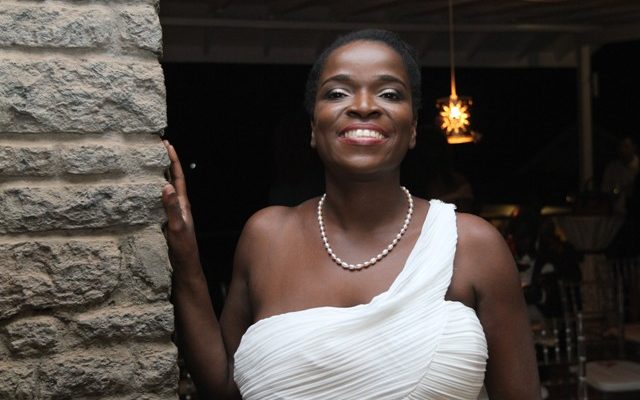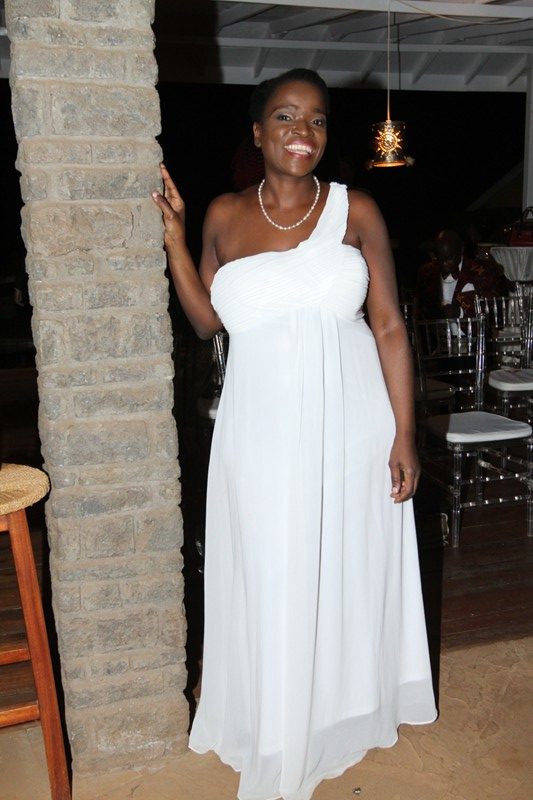
Entertainment
MEET AFRICAN OPERA SINGER AGAKURA BURIHABWA
Agakura Burihabwa, a soprano opera singer talks about her passion for opera and languages, fighting racism and overcoming depression.
Did always know you wanted to be an opera singer?
I never imagined I would be an opera singer. I did not grow up with classical music. I was into pop music. I started learning classical music late in life. I was at a low point in my life, I wasn’t feeling at home in Germany, so I decided to give a try on classical music. My music teacher was also a big influence. She more into opera and gradually, she introduced me to it. At first, I found this genre very conservative and it was not easy to get in. She told me to get a CD of Cecilia Bartoli and the first thing that got to my mind was human voice can be heard without a microphone. This fascinated me and I got hooked.
You have battled depression, what exactly was going on?
After the music classes, I took a break because I had long-term depression, mainly because of issues to do with racism. In 2009, I decided to give opera a chance as a means to escape. I looked for conservatoire in Cologne, Germany. But I was told with my cultural background I could not, so I started having private classes. In 2011, I decided to move to Barcelona because I had been there for vacation and it felt like home. I went with a friend and immediately I felt at home again. It has been really tough but I found a teacher, Marisa Roca, who is still teaching me to date. I had to learn a lot, she helped me discover my voice, I started gaining confidence. In Germany I was criticized for my African physique, but Roca made me feel more human. I started accepting myself and appreciating my Africaness.
How did you get over your stage fright?
I was afraid of standing in front of people because I thought people were going to laugh at me. My singing and repertoire teachers really worked with me during the two years of my preparatory phase. I still get moments of panic but it is not a feeling of ‘I’m ridiculous.’
You also teach language?
I teach German, English and French. I love languages and I started learning French at an earlier age, I am Burundian and we spoke a lot of it Kirundi at home. My parents decided we should take French classes and I was able to do learn it. I have been teaching language classes at the conservatoire school for four years now. My focus is to help singers pronounce the words correctly. I also speak Kirundi, Kiswahili, Spanish and Catalan.
How was your childhood like?
I was born is Siegen, Germany. My dad had a scholarship to study engineering in Germany. 1985 my dad got an offer to work for German NGO in Nairobi and it was important for him to raise us in Africa. There was a lot of racism in Germany and I remember being called a retard. This really affected my self esteem and my dad decided that we should relocate to Kenya. During the 1994 Rwanda genocide, so many of my relatives died, including my grandmother. This really affected me and I suffered from insomnia and depression.
At what point did your family relocate to Germany?
We live in Kenya for 12 years and in 1997, we went back to Germany. I started studying social work in Siegen. Here, racism was so pervasive! I remember in my first psychology class, the professor claimed a study has been proven that black people are less bright that white people. I always had to prove I was worth being there and it was tiresome, so I decided to move to Barcelona to pursue my dreams of opera.
What cities can an opera singer make it in life?
When you say the word opera, six big cities come to mind: Berlin, Milan, London, Paris, New York and Sydney. The danger is we limit ourselves o the six cities, yet there are more opera singers who want to make it a career. We need to open more spaces for opera singers. Further, it is also expensive traveling and auditioning in these cities, so often you find people giving up.
What is the one thing you can do to change the narrative?
There is a need for classical music and there is a need for musicians to make money around the world. I have performed in different places in Nairobi and they appreciate it. So there is untapped market in Africa for classical music. Why travel to top cities for opera when we can have it here? If opera musicians move back to their cities and create the events we, will not have to fight for the six top cities.
Is age a factor to opera singers?
I have always been confronted with my age. I have always been told you are too old to make it. But what is to make it? I believe making it is when you love what you do and you are ready to wake up every morning to do it. A friend was turned down because she is old, the agent said she was too old to be molded as compared to younger singers in their early 20s.
Who are some of your favourite opera composers?
Giuseppe Verdi, Franz Schubert and Felix Mendelssohn among others.
Do have any rituals you do before a performance?
First, I have to memorize my recital then I look for a quiet place to I warm up my voice. I make sure I know when to put my breaks to breath and before I start performing, I have to explain to my audience what the song is about. I give them a brief history of the composer and then I start my recital. Two things I avoid to protect my voice are air-conditioning and drinks with ice cubes.
Can African stories be told in opera recital?
Opera is about telling stories of people and their life experiences, and Africa being a continent full of stories why not? it can be done to an international level. There are many African stories that will be interesting see in an opera. So far there is the Opera Aida is based on a story written by Egyptologist August Mariette.
For mainstream musician body size matters, is it the same with opera singers?
We are being influenced by other genres of music. Classical music not like that but know they are looking more model figure. It was more about the music and the voice, but the new trend is can I sell you or shape? We see more petit opera singers now, my colleague went to audition in the US and he was told he would have to use a lot of weight. I wonder how did we get here with all the wonderful singers we have had.
What are some of the challenges you have faced?
Being an opera singer your voice is an instrument, so when people don’t like what you give them, it is hard for you to accept it but you have to look inside and find a way to make it better. You have to learn to be forgiving with yourself. It is also hard to make a living because we are many but most of the spaces are already taken, you can survive on it but not all of us stick to opera singing some of us have chosen to take a different path. As much I have gigs I still do teach language and voice classes as a side hustle. Sexual harassment is also an issue people ask for favours to give you a job.
[hit_count]










0 comments